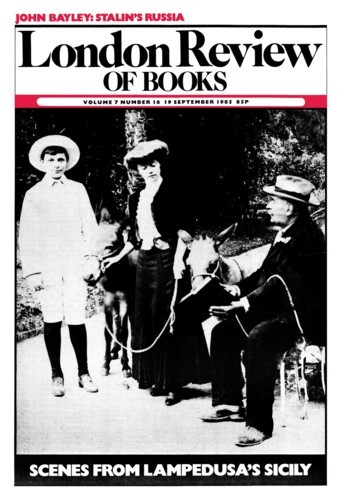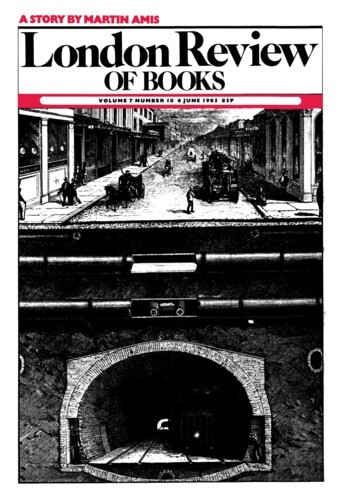Britain’s Juntas
Arthur Gavshon, 19 September 1985
Military and police murder squads roamed Argentina’s cities and villages during the Dirty War in search of anyone answering to the definition offered by General Jorge Rafael Videla: ‘A terrorist is not just someone with a gun or a bomb but also someone who spreads ideas that are contrary to Western and Christian civilisation.’ The dictatorial regimes led successively by Generals Videla, Roberto Eduardo Viola and Leopoldo Galtieri from 1976 to 1982 interpreted the concept of ‘Western and Christian civilisation’ in their own singular way. Last year, after a ninemonth investigation initiated by President Raul Alfonsin’s elected government, the National Commission on Disappeared Persons produced a 50,000-page report listing some of the ascertainable consequences. Not all were published, for fear of prejudicing the trials of those held responsible. But the Commission did make known that an estimated eleven thousand disappeared without explanation; that they were almost certainly murdered; that about twenty thousand people had been arrested, most of whom were beaten, tortured or raped; and that an exodus from the country of roughly two million took place – most of them people who thought their lives were in danger.’


